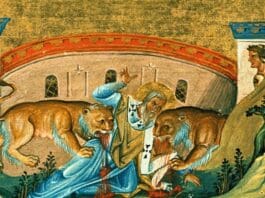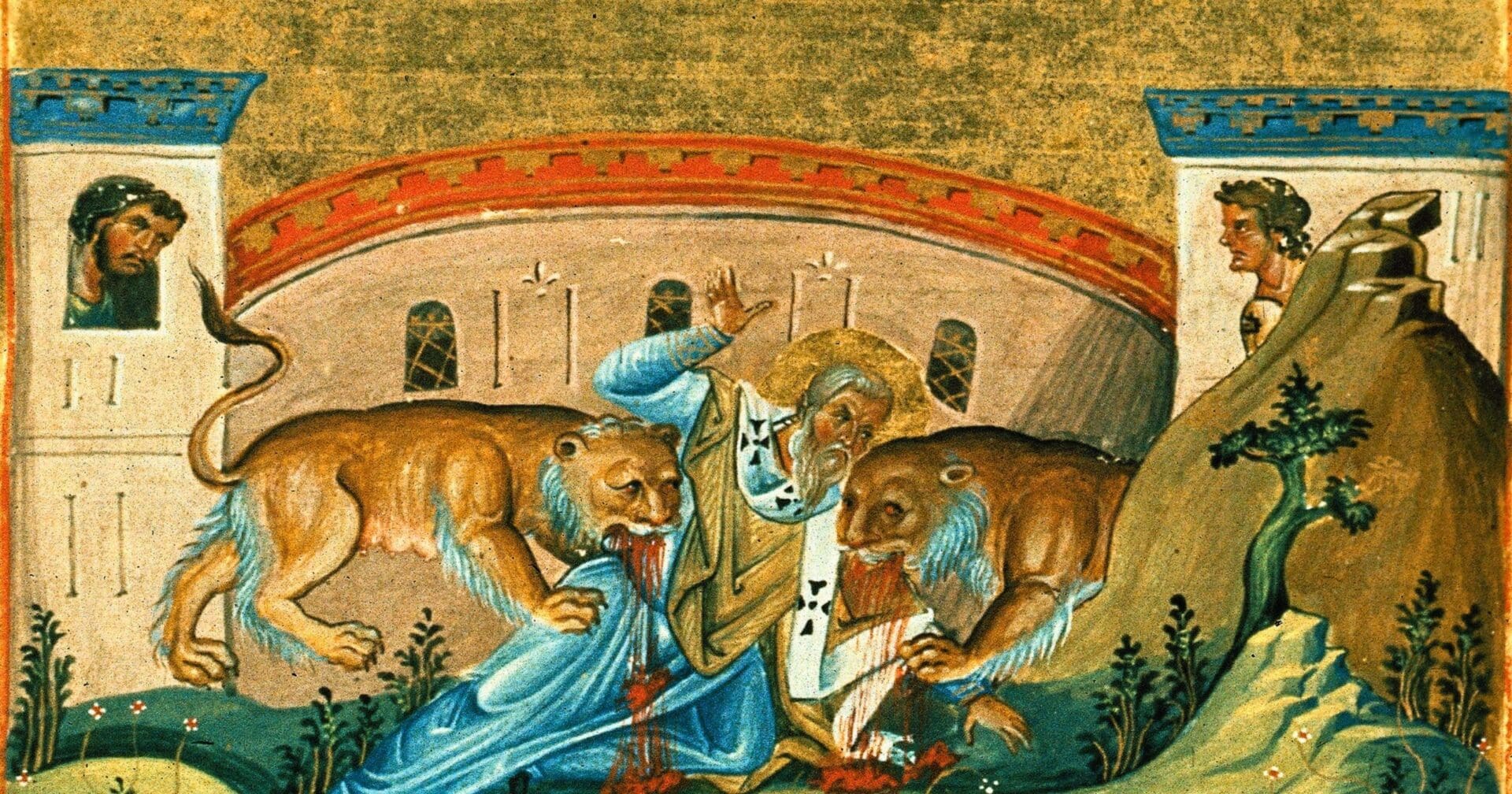
The early Christian Church was blessed with many luminaries, but few shone as brightly as Saint Ignatius of Antioch. A disciple of the revered John and consecrated as the second Bishop of Antioch by none other than Saint Peter himself, Ignatius became a cornerstone of early Christian faith.
By 107 AD, during Emperor Trajan’s reign, Ignatius’s unwavering commitment to Christianity became his purported crime. Refusing to renounce his faith, he was sentenced to a savage end: to be torn apart by wild animals in Rome’s grand coliseum. However, his journey to this tragic finale was not one of despair. Traveling through Asia Minor and Greece, he penned seven profound letters that remain treasures for the Church today.
These epistles are invaluable, not just as historical texts, but for the insights they provide into the structure and tenets of the early Church. Notably, it was Ignatius who introduced the term “catholic” to describe the universal Church. These writings not only underline the direct teachings from Jesus to the Apostles but showcase the spiritual fervor of a man preparing for martyrdom. They serve as a testament to Ignatius’s life, embodying the teachings of Christ to the very end.
Despite facing imminent death, Ignatius’s words were filled with hope and steadfast faith: “At last I am becoming his disciple… Even if I face fire, wild beasts, or torture, my focus is on reaching Jesus Christ. Earthly reign means little to me; my heart yearns for the one who sacrificed for us and rose in glory.”
He saw death not as an end, but as a transformation. He beautifully articulated this belief in a Eucharistic context, stating, “I am God’s wheat, to be ground by beasts, to become the pure bread of Christ.” His profound understanding reflects a mystic’s depth.
Saint Ignatius’s legacy is not just in his martyrdom, but in his fierce defense of the Apostolic teachings. He implored early Christians to stay true to these teachings and heed their Bishops, the Apostolic successors.
Photo credit: Public Domain via Wikimedia Commons
The post Saint Ignatius of Antioch appeared first on uCatholic.
Daily Reading
Memorial of Saints Basil the Great and Gregory Nazianzen, Bishops and Doctors of the Church
Readings for the Memorial of Saints Basil the Great and Gregory Nazianzen, Bishops and Doctors of the Church Reading 1 1 John 2:22-28 Beloved: Who is the liar? Whoever denies…
Daily Meditation
A Voice in Today’s WildernessUna voz en la jungla de hoy día
Click here for daily readings Today’s Gospel passage is especially relevant as we begin a new year with resolutions and hope. In this reading we hear John’s declaration echoing the…




